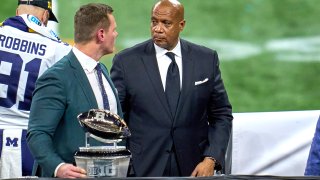
- There has never been a Black commissioner of a professional sports league in the U.S.
- Experts and academics say leagues have a long way to go to improve representation in front offices, especially in the C-suite.
It's been a heavy Black history month for professional sports.
Fired Miami Dolphins coach Brian Flores sued the National Football League, alleging racist hiring practices. Rapper Eminem took a knee during the Super Bowl halftime show in support of Colin Kapernick, the quarterback who was blacklisted for kneeling during the national anthem as his way of protesting racial injustice.
Those stories have been all over the headlines. So has Washington officially renaming its football team the Commanders, more than a year after ditching their previous name, which was long considered a racist slur against Native Americans.
We're making it easier for you to find stories that matter with our new newsletter — The 4Front. Sign up here and get news that is important for you to your inbox.
But there's a another conversation involving race and sports. And it's one that nobody is having, not in public anyway.
Across all U.S. major pro sports leagues, there has never been a Black chief executive, also known as a commissioner. Not in 102 NFL seasons, 75 seasons of the National Basketball Association or nearly 150 years of Major League Baseball. Add in the National Hockey League, Major League Soccer and the WNBA, and that's at least 28 pro sports league commissioners, of which none are Black.
"We can't even get Colin Kaepernick on a team," said Michael Eric Dyson, professor of African American studies at Vanderbilt University and a renowned scholar on race and culture. "So talking about a Black commissioner seems to be a leap of faith that is far 'beyond the ken of mortal man' — as they said on Andy Griffith Show."
Money Report
Following the social unrest in 2020, several private companies and organizations made commitments to improve their diversity. Goldman Sachs said it wouldn't take companies public without at least one "diverse" board member or candidate. And even the NFL and NBA touted their pledges to "drive economic empowerment" and combat racial injustices among Black people with more than $500 million committed.
But it remains to be seen if push for diversity and economic improvement will spread throughout the leagues, including pro sports C-suite positions like CEO.
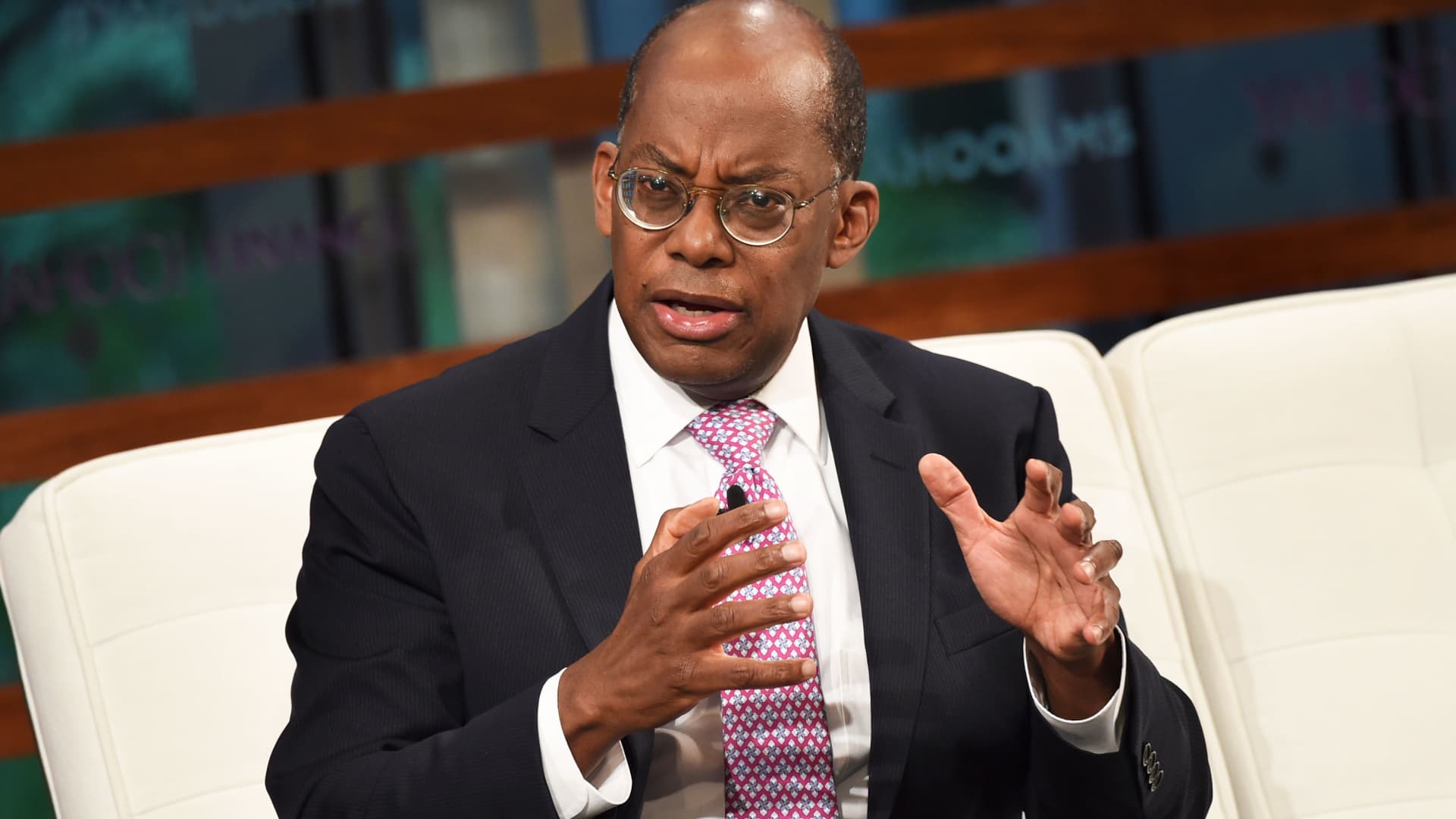
Lack of Black CEOs in America still a problem
And since sports is often referred to as a reflection of society, Roger Ferguson Jr. compared the matter to the lack of Black CEOs throughout America.
Ferguson Jr. was one of the few Black CEOs of a Fortune 500 company. In fact, he was one of just five Black CEOs to lead a top company when he led financial services company TIAA. Before his retirement in 2021, he steered the company through the global financial crisis and is credited with adding 1 million customers and increasing TIAA's assets under management to more than $1 trillion.
Ferguson called the lack of Black CEOs a "multifaceted problem" and suggested diverse boards would help solve the issue.
"There's more evidence that shows diverse teams, including in a business context, leads to better outcomes — and financial outcomes, not just cultural outcomes," said Ferguson, who is also a CNBC contributor.
But though Ferguson, former American Express CEO Kenneth Chenault and ex-Merck CEO Ken Frazier helped pave the way, there are still only a few Black CEOs that lead a Fortune 500 company. They include Thasunda Brown Duckett, who replaced Ferguson at TIAA, Rosalind Brewer, the CEO of Walgreens and Marvin Ellison, the CEO of Lowes.
Ferguson added he's "cautiously optimistic" more top companies would seek to hire Black CEOs but warned that companies and sports leagues will need to address the matter, especially as Black consumers start to take notice.
"Boards need to understand that this is not merely a moral imperative," Ferguson said. "It's a business imperative. And frankly, particularly in sports when there are so many of the athletes who are African-American — so many of the fans are African American — people are going to expect to see the front office and the back office looking very much like the fan base and more like the teams. It's going to be good business, not just morally right."
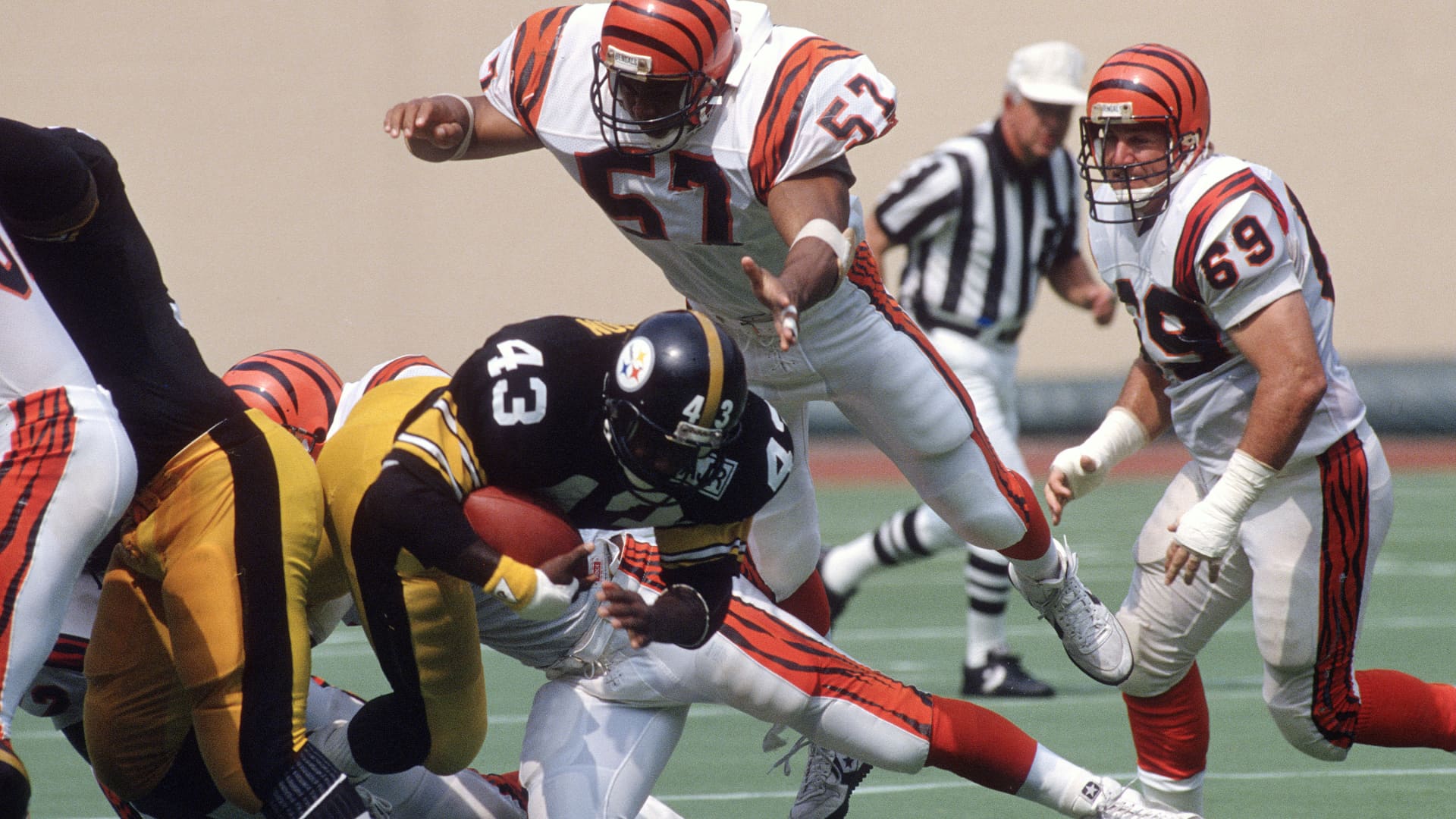
Race problems and the Reggie Williams nomination
Dyson, the Vanderbilt University professor, went beyond the corporate world. He suggested the ignorance around race matters remains the culprit in keeping Black executives suppressed, ensuring there would never be a Black commissioner.
"The intellectual elite thinks that Black people are good enough to supply physical labor but not intellectual and social leadership, which is ironic when you think about what we've done as civil rights leaders, as ministers, as corporate heads," Dyson told CNBC. "There's no lack of proof that Black people are equally capable as any other race or group of people to provide leadership of a league."
Dyson called it "one of the last bastions of non-Black superiority."
He added a false narrative remains that Black candidates aren't "smart enough, savvy enough, well-connected enough" to fill a commissioner's position.
"As a commissioner, obviously, you have to be connected," said Dyson. "Being a commissioner indicates that you have a well-established relationship and the capacity to negotiate with those owners and on behalf of them in the broader arena. And there may be some skepticism about the ability of a Black person, male or female, to be able to engage in such activity."
There was a Black commissioner on the lower sports level when Terdema Ussery held the title for the Continental Basketball Association, a minor league that folded in 2009. And in 2006, there were rumblings that a major pro a sports league was close to adding its first Black CEO.
Richard Lapchick, the chairman of the University of Central Florida's Institute for Diversity and Ethics in Sport, was an early pioneer to suggest a Black candidate for a commissioner's seat. He wrote a 2006 article for ESPN where he called for the NFL to hire former linebacker and respected sports executive Reggie Williams for the job. Williams' name was floated as a possible replacement for then-Commissioner Paul Tagliabue.
And Williams had the credentials.
Williams played his entire career with the Cincinnati Bengals, served as a city council member while playing his last season in 1989 and became the first Black president at Disney. He's also the mastermind behind creating Disney's Wide World of Sports Complex.
"I thought he was a great businessperson," Lapchick said of Williams. "He had a football background. I thought his perspective was going to be refreshing for the NFL for a lot of the issues that were out there then and still today."
NFL owners skipped over Williams, though, and gave the role to Roger Goodell, who went on to be one of the highest-paid CEOs in America. Goodell made an average of $64 million annually from 2019 to 2021, according to the New York Times.
Goodell's deal ends in 2024, and there was some speculation he could retire after his current contract, which could create another chance at making history. But last week, Sports Business Journal reported Goodell was negotiating an extension, which the NFL denied.
But if Goodell does walk away, would NFL owners seriously consider a Black candidate?
Dyson said no.
"These owners have not evinced any indication, given any sign, that they are willing with their troubled and often traumatic racial beliefs, some of them antiquated — to move forward," he said. "It would be great, but the lines of succession have dictated that it's a white man's club."
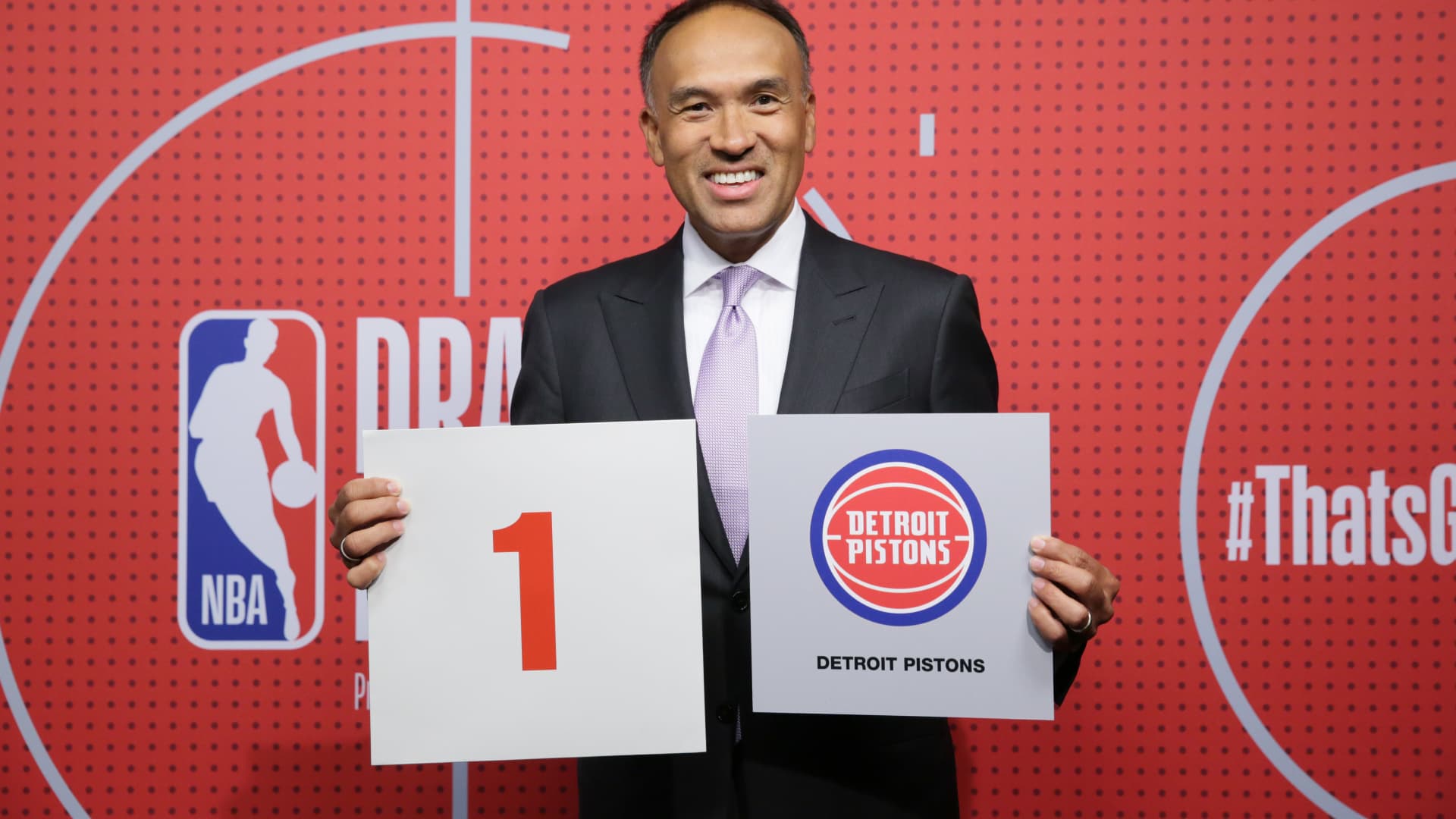
Will there ever be a Black commissioner?
But as major leagues lag behind on diversity throughout the C-suite, the college sports landscape has moved forward.
In March 2019, the Sun Belt Conference hired Keith Gill, making him the first Black man to fill the role of commissioner in an NCAA football bowl subdivision conference. And in June 2019, Kevin Warren, the first Black chief operating officer in the NFL, took over as Big Ten commissioner. He became the first Black man to lead a Power 5 conference.
With his NFL business background and now gaining experience in a commissioner's role, Warren is being compared to Williams as there's speculation in sports business circles that he could one day be a pro sports commissioner, perhaps in the NFL.
"Absolutely," Lapchick said when asked if he thought Warren is a good candidate. "I've admired him since his days at Minnesota."
Asked about the speculation he could one day be CEO in the NFL, Warren said, "I have faith in people. And I have faith that people are going to do the right thing for the right reasons and at the right time. I know what I can do is make sure I operate in this position at the highest level at all times."
But Columbia University professor Len Elmore suggested the NBA would have a Black commissioner before the NFL. He used pro football's problem of hiring Black head coaches as evidence that it's not ready to added a Black CEO.
"You've seen plenty of qualified Black coaches out there, and [owners] know that they're out there," he said. "But they still go hire guys who are less qualified. That's the difference — who are they comfortable with. That's what I'm looking at."
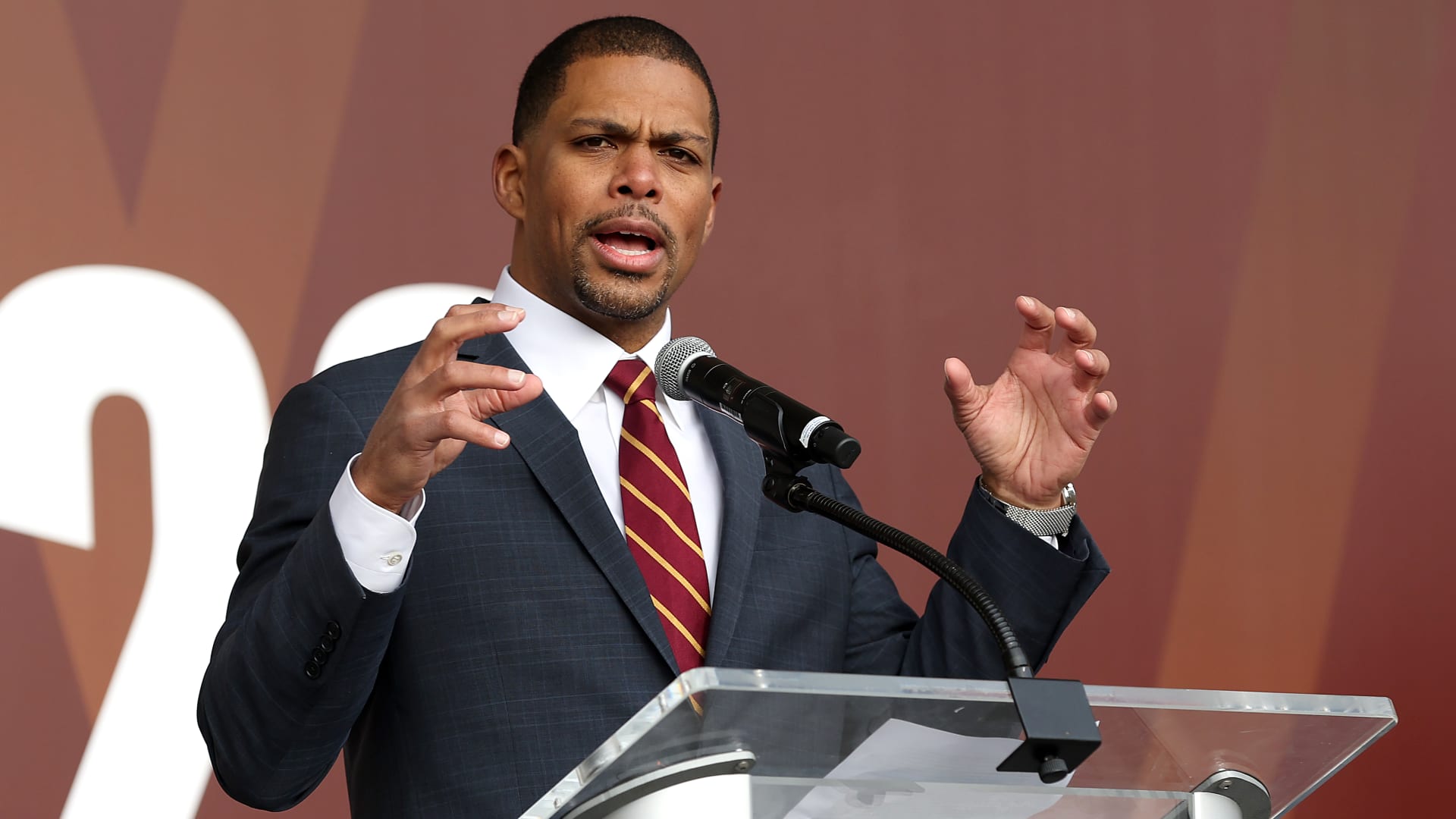
A tough job to land
But again, the NFL doesn't appear ready to make the move. And the NBA's CEO job could be a ways off, too.
League commissioner Adam Silver's contract also runs through 2024. He's 59, and showing no signs of stepping away. Also, Silver remains the most popular commissioner in pro sports after he fired former Los Angeles Clippers owner Donald Sterling in 2014 for making racial remarks.
"That was the most important decision a commissioner has made during my lifetime," Lapchick said.
Should Silver move on, though, Mark Tatum, the NBA's deputy commissioner, could be in line to make history. Like Warren, Dyson said Tatum is "gaining experience, gaining all of the know-how, deploying his skill" to one day be a commissioner.
And a future name to lookout for include Washington Commanders team president Jason Wright, who became the NFL's first team president in August 2020, during the social unrest.
Craig Robinson, the former Princeton standout and Oregon State University men's basketball coach, is now the executive director at the National Association of Basketball Coaches. He echoed that sports owners need to overcome "institutional bias" before history can be made.
"I think we're at a time where people are enlightened enough to understand that there are plenty of qualified candidates who could do a really good job," Robinson said. "The commissioner is hired by the owners. And [the majority] of owners are white. So there's the problem with just exposure. The owners being exposed to high-quality, high-performing, minority women and Black folks who can do the job."
He added the commissioner's seat "is hard to come by for the majority of folks because there are so few of them. A lot of stuff has to work, including the right time."
Whether that time is near remains to be seen. Dyson argued sports leagues have numerous diversity issues to address before he envisions a Black CEO leading a major league.
"We can't even get some of the more diverse issues argued about and straightened out within these leagues," Dyson said. "Progress is certainly being made, but they are a reflection of the times. A Black commissioner is, unfortunately, and tragically years, if not decades off."






